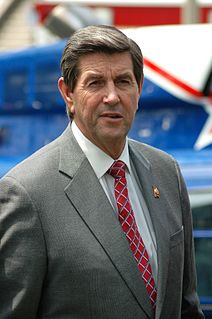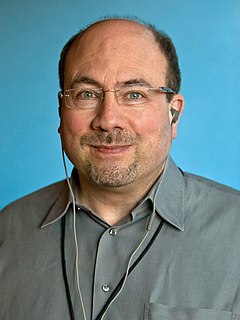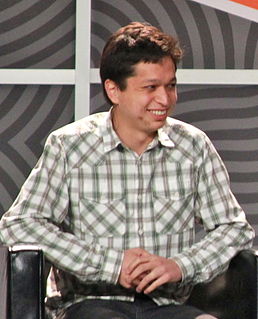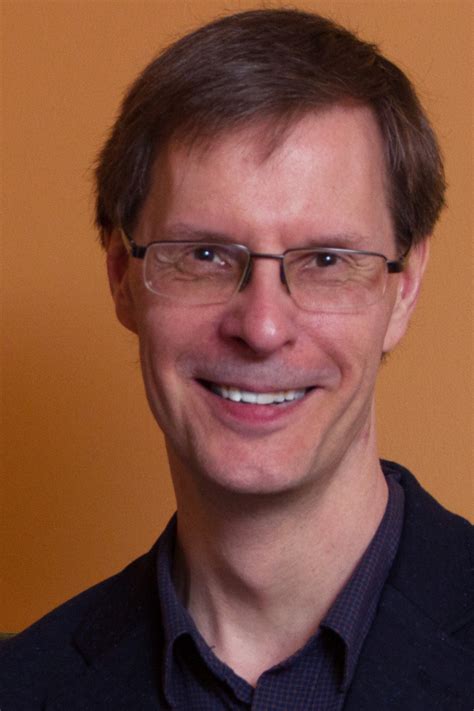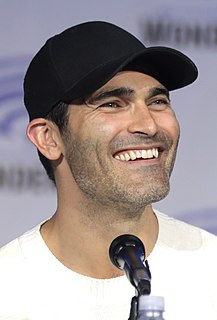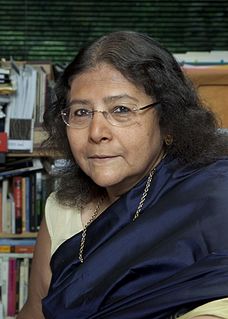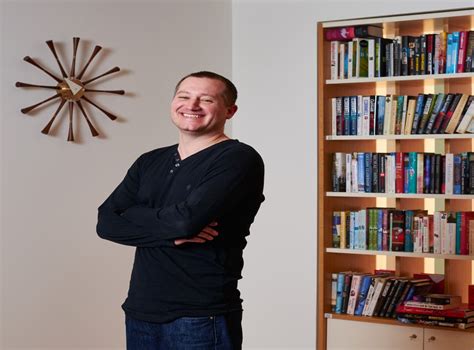A Quote by William J. Clinton
Nothing we do in this great capital can change the fact that factories or information can flash across the world, that people can move money around in the blink of an eye... Nothing can change the fact that technology can be adopted, once created, by people all across the world and then rapidly adapted in new and different ways by people who have a little different take on the way that technology works.
Related Quotes
Change makes us confront the great unknown. It introduces different things into our lives. Different places. Different ideas. Different people. It's all hard to accept at times, and change can often be a little scary. But if there's one fact that I've learned from raising a family, from running several businesses, from serving in Congress and now as Governor, it's that nothing has ever grown without changing.
The information revolution has changed people's perception of wealth. We originally said that land was wealth. Then we thought it was industrial production. Now we realize it's intellectual capital. The market is showing us that intellectual capital is far more important that money. This is a major change in the way the world works. the same thing that happened to the farmers during the Industrial Revolution is now happening to people in industry as we move into the information age.
We think of Craigslist as a form of Social Media.We provide a simple service that is mostly free and we leave money in the community, instead of taking it away. Shared values, nothing fancy, treating people like we want to be treated. What works on the net works for people in general. The net has very little to do with technology, what matters is how people use the technology.
The issue of climate change, it really does bring home the fact that we are on one planet, and that some of the impact of what human beings do in one corner of the world is going to affect people in a distant corner of the world. So we may still feel very far from each other, but we are really very close to each other because of the changes we have made with travel and technology and especially the information technology.
Introducing a technology is not a neutral act--it is profoundly revolutionary. If you present a new technology to the world you are effectively legislating a change in the way we all live. You are changing society, not some vague democratic process. The individuals who are driven to use that technology by the disparities of wealth and power it creates do not have a real choice in the matter. So the idea that we are giving people more freedom by developing technologies and then simply making them available is a dangerous illusion.
When I turned twenty-five, I did a six-week trip around Europe by myself. I'd never really done a European trip before and I'd definitely never traveled alone like that. I just had such a great time meeting people. I had such a great time seeing new cultures and different ways that people think and different ways that they live and different ways that they see the world.
Historically, the idea that you take something novel and you break it has been seen as the ultimate rejection of Enlightenment values, of progress, of civilization - because how could you possibly move forward if you break technology? I think that that misses the point, that if you introduce any kind of technology, what you're introducing is a new way of living and the consequences of that new way of living for people who were enmeshed in a different way of living need to be thought through.
Holman's world is a worst case scenario but it's healthy to examine extreme possibilities. If the technology that is used for genetic enrichment in Genus had been distributed equitably, across society, it could have been nirvana, a great world where people don't fear the diseases that we die from. The problems that arrive are more to do with resource hording than technology itself.
It's amazing how much information is coming at us most of the time through technology, the media and the busyness of the world around us. I've decided that the world probably isn't going to change, so I have to change. I'm learning how to keep my mind on what I'm doing, rather than thinking about several things at once or what I want to do next.
When you grow up, you tend to get told that the world is the way it is, and your life is just to live your life inside the world. Try not to bash into the walls too much. Try to have a nice family life. Have fun, save a little money. That's a very limited life. Life can be much broader, once you discover one simple fact, and that is everything around that you call life was made up by people who were no smarter than you. And you can change it. You can influence it. You can build your own things that other people can use. Once you learn that, you'll never be the same again.

